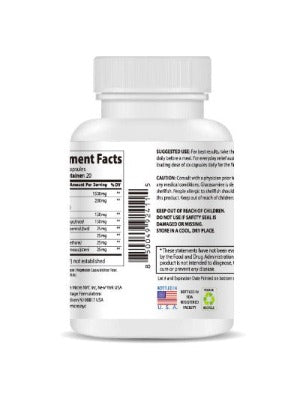The immune system plays a crucial role in protecting the body's health. A healthy and robust immune system can effectively defend against viruses, bacteria, and other harmful microorganisms, preventing infectious diseases. Additionally, the immune system helps combat tumor cells and maintains normal physiological functions. If the immune system is weakened or insufficient, it can lead to a range of adverse health consequences.

1. The Role of Immunity
The immune system is the body's natural defense line, responsible for defending against viruses, bacteria, and other harmful microorganisms. Maintaining a strong immune system is vital for preventing diseases, improving quality of life, and adapting to changes in the external environment.
1.1 Disease Defense
One of the primary functions of the immune system is to identify and attack pathogens that invade the body, such as bacteria, viruses, and fungi. A healthy immune system can more effectively combat these pathogens, reducing the risk of infectious diseases.
1.2 Enhanced Antiviral Capability
The immune system plays a critical role in fighting viruses. Protecting immunity can increase resistance to viral infections, helping to alleviate symptoms and shorten the duration of virus-induced illnesses.
1.3 Accelerated Recovery Process
When the body is injured or infected, the immune system quickly responds and initiates the repair and recovery process. A healthy immune system can accelerate wound healing, restore strength, and shorten the discomfort period during illness.
1.4 Prevention of Chronic Diseases
The state of the immune system is closely related to the occurrence and development of chronic diseases. Good immune function helps prevent chronic inflammation, thereby reducing the risk of cardiovascular diseases, diabetes, and certain cancers.
1.5 Improved Vaccine Effectiveness
Maintaining a healthy immune system helps improve the effectiveness of vaccines. Vaccines work by activating the immune system to produce antibodies, providing protection against specific pathogens. A strong immune system can more effectively generate and maintain this protective immune response.
1.6 Delayed Aging
The aging of the immune system is related to the overall aging of the body. By taking measures to protect immunity, the aging process of the immune system can be slowed, maintaining overall health and vitality.
1.7 Enhanced Quality of Life
A strong immune system not only reduces the occurrence of diseases but also improves quality of life. Healthier individuals typically have more energy, feel less fatigued, and can better cope with daily stress and challenges.
2. Adverse Consequences of Insufficient Immunity
2.1 Susceptibility to Infections
When the immune system is insufficient, the body is more susceptible to infections by bacteria, viruses, and other pathogens. Infections can lead to various diseases, from the common cold to severe respiratory infections and other contagious diseases.
2.2 Chronic Inflammation
Insufficient immunity can lead to chronic inflammation, such as cardiovascular diseases, diabetes, and arthritis.
2.3 Increased Risk of Tumors
The normal function of the immune system is critical for preventing the growth and spread of tumor cells. Insufficient immunity can lead to a decreased ability to monitor and eliminate tumors, increasing the risk of cancer.
2.4 Autoimmune Diseases
When the immune system is overactive or abnormal, it may attack the body's normal tissues, leading to autoimmune diseases, such as rheumatoid arthritis and lupus.
2.5 Slow Recovery
In a state of insufficient immunity, the body's recovery from diseases or injuries may be slower, as the immune system cannot effectively respond to and eliminate the causes of problems.
2.6 More Severe Infections
Individuals with weakened immunity may experience more severe and prolonged symptoms when facing infections. Some diseases may progress more rapidly in the context of low immunity.
2.7 Systemic Impact
The immune system affects the overall health of the body, so insufficient immunity can trigger systemic problems, including fatigue, malnutrition, and other systemic diseases.
3. Daily Immune Gummies
Daily Immune Gummies contain various vitamins and minerals designed to support and strengthen the body's immune system. The benefits of taking Daily Immune Gummies include:
3.1 Boosting Immunity
The gummies typically contain ingredients such as vitamin C, vitamin D, and zinc, which are known to enhance the immune system.
3.2 Convenient Intake
For those who dislike swallowing traditional vitamin pills or have difficulty doing so, gummies are a convenient option.
3.3 Improved Nutrient Intake
For individuals whose diet lacks specific nutrients, immune gummies can supplement these nutrients.
3.4 Good Taste
Gummies are more appealing than traditional vitamin pills or capsules, especially for children, making them more willing to take vitamins regularly.
Purchase Link: Daily Immune Gummies









